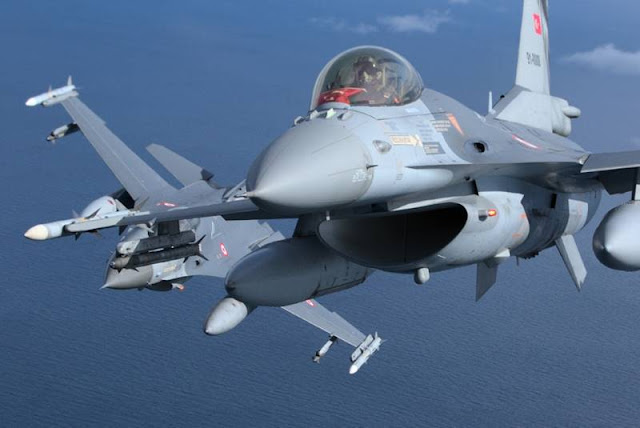« It has been almost three years since the United States formally kicked Turkey out of the consortium to build and fly the next generation F-35 joint strike fighter. The move followed Turkey’s decision to purchase Russian S-400 anti-aircraft missiles that, when operational, would allow Russian engineers to gather intelligence on the capabilities of American aircraft » reports Michael Rubin* in Washington Examiner.
After losing the F-35s, Turkey waited until President Joe Biden took office and then requested to purchase 40 F-16 fighter jets and upgrade kits for 80 more. Both the State Department and Congress, however, must approve of any such transfer.
It was against this backdrop that Democratic Rep. Frank Pallone of New Jersey sent a letter to Secretary of State Anthony Blinken asking both about the continuity of sanctions on Turkey for its use of S-400s, as well as Turkey’s request for upgraded F-16s. Naz Durakoglu, a legislative affairs specialist at the State Department, just responded justifying the new sale to Turkey.
« Turkey is a longstanding NATO Ally with the second largest military in the Alliance, » she wrote. « It is an active contributor to NATO missions including most recently in Eastern Europe, the Black Sea, the Balkans, and Afghanistan. Turkey’s support for Ukraine’s territorial integrity and cooperative defense relations are an important deterrent to malign influence in the region. »
This is disingenuous given how Turkey both legitimized and encouraged the Taliban in Afghanistan and has positioned itself as a hub for Russian sanctions evasion. Blinken and the Turkey lobby within the State Department may want to accentuate the positive, but the reality is that Turkey plays both sides of every crisis. Indeed, Durakoglu appears unaware that even as Blinken telephoned his Turkish counterpart to thank him for invoking the Montreux Convention, the Turkish leader did so in a way that hampered U.S. warships from entering the Black Sea but had little impact on Russian traffic. (Indeed, the Russians also thanked Turkey).
Durakoglu continued, « The Administration believes that there are nonetheless compelling long term NATO Alliance unity and capability interests, as well as U.S. national security, economic, and commercial interests that are supported by appropriate U.S. defense trade ties with Turkey. » This, too, falls flat. She does not specify why Turkey needs upgraded F-16s, especially as Turkey does not utilize them in any of the locations she cited. Over the past several years, Turkey has utilized its existing F-16s to bomb Yezidi returnees in Iraq, threaten war against fellow NATO member Greece, and strike at America’s Syrian Kurdish allies. Advanced fighter jets are not an entitlement, especially when they are more likely to be used against American allies than adversaries. Indeed, Egemen Bagis, a close adviser to Turkish President Recep Tayyip Erdogan, even threatened to use Turkish military forces against Americans under contract with Cyprus looking for gas in Cypriot waters. Erdogan subsequently rewarded him with an ambassadorship.
There are ways to support Turkey without throwing Yezidis, Kurds, Armenians, Greeks, and Cypriots under the bus. Perhaps the U.S. can provide Turkey with the same nonlethal support that Turkey insists we limit ourselves to with Cyprus. Simply put, it is national security malpractice to arm and equip a regime intent on attacking victims of genocide and America’s allies.
*Michael Rubin is a contributor to the Washington Examiner’s Beltway Confidential. He is a senior fellow at the American Enterprise Institute.
Washington Examiner, April 11, 2022, Michael Rubin

